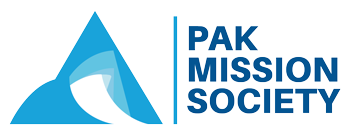|
Key Objective
|
Task descriptions
|
|
Objective # 1:
Technical Role
|
- Lead the project implementation of integrated projects. Align these interventions with national strategies, donor priorities, and the overarching goals of the organization to maximize impact and sustainability.
- Develop a project implementation technical strategy to empower local populations and improve their resilience.
- Additional activities could encompass livestock management programs to improve household income and agricultural innovation initiatives that introduce climate-smart practices and technologies, ensuring adaptability to changing environmental conditions.
- Prioritize the inclusion of marginalized and vulnerable groups, such as women, youth, and persons with disabilities, in all program components.
- Iintegrate DRR and WASH components into food security and livelihood projects, fostering a holistic approach to resilience building. For example, introduce flood-resistant crop varieties, improve water management practices, and conduct community-based DRR training to mitigate risks associated with climate change and natural disasters. Similarly, ensure WASH facilities are accessible, sustainable, and aligned with health and hygiene promotion efforts.
- Conduct comprehensive needs assessments, including baseline and end-line surveys, to identify critical gaps and vulnerabilities in food security, livelihood opportunities, disaster risk reduction (DRR), and water, sanitation, and hygiene (WASH) sectors.
- Capacity building of staff to ensure the quality implementation.
|
|
Objective # 2:
Programme Management
|
- Design and update comprehensive project cycle management documents, including detailed implementation plan, HR plan, etc.
- Oversee the execution of project activities in alignment with project goals, objectives, and donor requirements, ensuring adherence to timelines.
- Identify potential risks throughout the project lifecycle, develop mitigation strategies, and monitor risk indicators to proactively address issues.
- Resolve conflicts among team members, stakeholders, or project activities through negotiation, mediation, and fostering a collaborative work environment.
- Ensure all project deliverables meet quality standards and comply with organizational, legal, and donor-specific requirements.
- Prepare and present periodic progress reports, impact assessments, and project documentation for internal management and external stakeholders, including donors.
- Lead response efforts during emergencies (if any), recovery, and developmental phases, including floods, droughts, or displacement crises, ensuring rapid assessment and implementation of relief interventions.
|
|
Objective # 3:
Programme Financial Management
|
- Prepare budget consumption plan and manage project budget, ensuring optimal utilization of resources in line with financial policies and donor requirements.
- Participate in monthly budget vs actual meetings and update the budget projections.
- Oversee procurement processes for program inputs, ensuring transparency and efficiency.
|
|
Objective # 4:
Monitoring & Evaluation
|
- Conduct regular and systematic field visits to evaluate the quality of program implementation, ensuring adherence to established organizational, donor, and international standards.
- Establish mechanisms for real-time data collection, management, and analysis, leveraging digital tools and platforms to enhance efficiency and accuracy.
- Document lessons learned, challenges encountered, and best practices identified throughout the project lifecycle. Organize learning workshops, debriefing sessions, and case studies to capture these insights and ensure they inform future programming.
- Support the MEAL team in regularly monitoring and evaluating the impact of implemented interventions to ensure they meet their objectives and deliver measurable outcomes.
- Adapt and refine strategies based on feedback and lessons learned and promote a culture of continuous improvement and accountability.
|
|
Objective # 5:
Coordination/Networking/
Partnership
|
- Collaborate with local stakeholders, including government authorities, NGOs, and private sector partners, to ensure the integration of interventions into broader development frameworks and policies.
- Advocate for sustainable practices and the scaling up of successful models, contributing to long-term food security and livelihood improvements in the region.
- Represent the organization in coordination forums such as the Food Security Cluster, Livelihood Working Group, and Cash Working Group (CWG) to advocate for program priorities.
- Collaborate closely with program teams to integrate feedback from beneficiaries and stakeholders into program design and implementation processes.
|
|
Objective # 6:
Team Management & Capacity building
|
- Supervise and mentor project staff to ensure efficient program delivery.
- Organize capacity-building workshops and training sessions for staff.
- Promote a collaborative work environment, promoting teamwork and knowledge sharing among staff and stakeholders.
|
